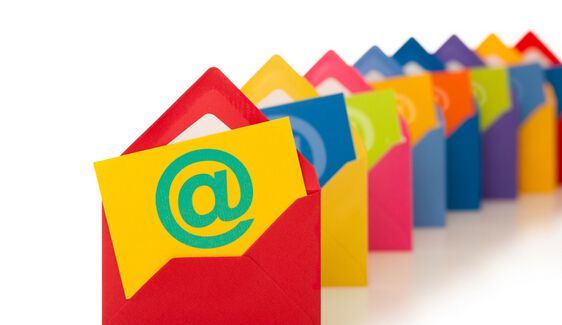你还在办公桌前吃午餐吗?
|
爱思英语编者按:如今,越来越多的美国人都在办公桌前吃午餐,或更有甚者干脆就不吃了。放弃适当的午间休息对一个人的健康有害吗?田纳西大学查特努加分校(University of Tennessee at Chattanooga)工业组织心理学与职业健康心理学教授克里斯·康宁汉(Chris Cunningham)就此表达了自己的一番看法。 More Americans are eating lunch at their desks or even forgoing it altogether. Is passing up a proper midday break bad for one's health? Chris Cunningham, professor of Industrial-Organizational and Occupational Health Psychology at the University of Tennessee at Chattanooga, offers one view. Brain Drain The attention it takes people to focus at work drains them of psychological, social and material reserves, says Dr. Cunningham, leading to stress and lower productivity. 'Taking a lunch break away from the desk lets people separate themselves from the source of that drain,' he says. 'And that offers the opportunity to build back some of those resources in the middle of the day -- rather than just at the end when work is over.' There is no hard data on how much of a break the body needs to fully recover its resources, says Dr. Cunningham. He believes it's person-specific; some might need 10 minutes, while others might need an hour. Gravitate to Green With so much research showing that parking in a chair all day puts a drag on productivity, mood and physical health, Dr. Cunningham suggests ditching the desk at least once at midday to do something energizing: 'At least go for a walk down the hall.' If possible, he says, use the full break to switch focus to something uplifting -- instead of, say, online shopping, reading email or running to the bank. 'I wouldn't call that a resource-replenishing moment,' he says. Dr. Cunningham cites psychologist William James's 19th-century concept of passive attention, which suggests that people can restock their inner resources by focusing on something that fascinates them and draws them in, seemingly without effort. The easiest way to replenish, research shows: Interact with nature. 'Just changing your environment relieves you of the need to decide what you want to attend to, and that in itself poses a sort of relief,' says Dr. Cunningham. A Buddy Boost Studies have also shown that connecting to colleagues socially throughout the day can be very energizing. 'If you're a service rep or a call-center employee, I could understand why you wouldn't want to take a social lunch,' says Dr. Cunningham, 'but for some of us, it's different enough from what we've been spending our day doing, and we get a lot out of it.' He is a fan of going out with co-workers for lunch frequently -- and not talking about work. 'That is a resource-replenishing activity,' he says. The only downside: 'You can't write that lunch off your taxes.' Enjoy Eating In a recent exploratory study, Dr. Cunningham asked medical residents to rate the degree to which they found each of their daily activities to be stressful, resource-straining and resource-replenishing. 'Eating during work hours was the one activity that was rated only as replenishing, and tremendously valuable to them,' he says. Nutritionists have long asserted that eating small amounts throughout the day helps maintain a level metabolism. And most people have experienced the sluggishness that follows a heavy midday meal. 'It's certainly not advised to have a Thanksgiving feast for lunch,' says Dr. Cunningham. 'Then again, you should give yourself a chance to be fascinated with the world around you -- and enjoying your food can do that.' 如今,越来越多的美国人都在办公桌前吃午餐,或更有甚者干脆就不吃了。放弃适当的午间休息对一个人的健康有害吗?田纳西大学查特努加分校(University of Tennessee at Chattanooga)工业组织心理学与职业健康心理学教授克里斯·康宁汉(Chris Cunningham)就此表达了自己的一番看法。 脑力枯竭 康宁汉说,工作要求人们集中注意力,这使得其心理、社交及物质层面的能量精力消耗枯竭,而这一切又会导致压力的产生并降低劳动者的生产力。他说:“从办公桌边抽身离去进行午间休息能让人们远离脑力枯竭的根源。这还会为你提供在晌午时分——而不是等到一天工作结束之际——恢复大脑活力、重整精气神的机会。” 康宁汉说,对于人体到底需要休息多久才能完全恢复脑力,目前尚无确凿的数据。他认为,这完全是因人而异。有些人可能只需歇上10分钟,而另一些人则可能需要调整一个小时。 投入大自然的怀抱 诸多研究表明,整天黏坐在椅子上会对生产效率、劳动者的情绪以及身体健康形成拖累。康宁汉建议,午间时分至少离开办公桌一次去做点儿提神醒脑的事情:“起码要走到大厅尽头散散步。”如果可能的话,他说,利用整个休息时段将注意力转移到一些振奋人心的事情上——而不是,比如说,到网上购物,收读电子邮件或奔到银行办事。“我不会将它们称为养精蓄锐、给大脑充电的时刻”,他补充说。 康汉宁还引用了心理学家威廉·詹姆斯(William James)在19世纪提出的被动注意的概念。被动注意是指人们能够通过关注让他们着迷、吸引他们的事物来给自身内在能量充电,这一举动看起来毫不费力。 研究表明,充注精力最简便的方法就是:与大自然互动。康汉宁说:“只要换一换你的环境就能缓解你的这一需求——即决定你想要关注的事物的需求,而这种调整本身就是一种放松。” 联络同事感情,提高人缘 诸多研究也已表明,在一天中与同事们联络联络感情也特别能提神醒脑。 康汉宁说:“如果你是一位客服代表或是呼叫中心的一名雇员,我能理解你为什么不愿参加社交午餐。但对于我们当中的另一些人,与同事一起吃顿饭,这与大家日间从事的工作内容完全不同,况且我们还能从中受益良多。” 康汉宁自己就经常和同事一起出去吃午餐——而且饭桌上不谈公事,他对此颇为热衷。他说:“这就是一种重整精气神、恢复脑力的活动。” 唯一的弊端是:“这顿午餐,公司不会给你报销,你得自己掏钱。” 享用美食 在最近的一次调研中,康汉宁让住院医师给他们自己的每一项日常活动从三个层面打分,看看哪些活动会让他们觉得压力重重,哪些活动使人耗神费力,又有哪些活动能让人恢复能量、精神倍增。他称:“在工作时段进食是仅有的一项被评为能给人充注能量且没有被贴上其他标签的活动,而且这一活动对他们而言意义重大。” 营养学家长期以来都称,一整天少吃点有助于维持新陈代谢的水平。而大多数人都经历过在午间饱餐一顿后的慵懒懈怠感。 康汉宁说:“当然了,并不建议大家像享用感恩节饕餮大餐那样敞开肚皮吃午饭。但容我再说一遍,你应该给自己一个欣赏周边世界的机会——而享用美食能为你提供这样一个机会。” |








